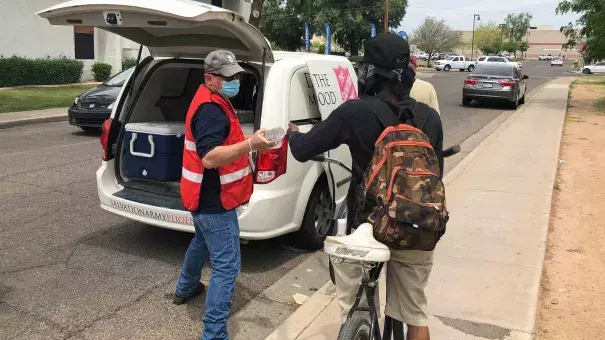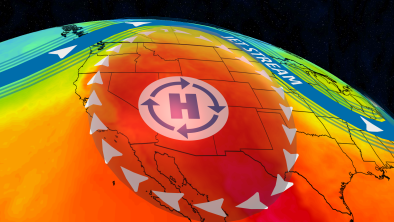Coronavirus Complicates Heat Wave Relief for Governments, Nonprofits and the People They Serve

Climate Signals Summary: Record-breaking heat has taken hold in the southwestern US. The heat wave is expected to break all time monthly temperature records for April in several locations. The increase in extreme heat events in recent years is a clear signal of climate change.
Article Excerpt: As Phoenix suffered through five straight days under an excessive heat warning this week, workers with the Salvation Army opened centers where people could go to cool off, and mobile units were deployed to hand out bottled water to homeless people on the streets.
...
Cooling centers open in cities like Phoenix, Los Angeles and Las Vegas on extremely hot days as places where people can go for a few hours of relief. The centers target the homeless population and those without air conditioning. This year, those who run the centers have to factor in social distancing and other impacts of the pandemic.
...
The dilemma of whether or not to seek relief from the heat in a public place is similar to the one that faces those who live in areas with severe weather like tornadoes and hurricanes who must weigh the odds of staying home and hoping for the best or going to a shelter, despite repeatedly being warned to avoid places where people gather.
Those who decide to look for someplace cooler in the coming weeks, or even months, may find that some of their usual choices aren't available.
...
The elderly, the homeless and those with underlying health conditions are most vulnerable to heat illness or death. Those same populations are also more at risk for complications from COVID-19.
Recent weather trends have made the situation worse because temperatures aren't dropping as low at night.
"We get really concerned when there is going to be widespread heat across a region that will last several days," [weather.com meteorologist Danielle] Banks said. "The daytime high temperatures will get a lot of attention, but when the morning low temperatures are also well above average, people without air conditioning have no escape from it. Their bodies don’t get a chance to cool down."
Global warming and climate change are driving higher temperatures worldwide, and 2020 is on track to be one of the planet's hottest years on record.
"We have learned a lot in the last 20 years on how to reduce heat wave deaths through innovations like cooling centers and checkups on vulnerable folks," said Weather Underground climate writer Bob Henson. "There is a countercurrent, though, and that's our warming planet. Nights are warming especially quickly, which exacerbates the impact of multi-day heat waves."
The heat wave in Phoenix was unusually early this year, which has Yardley worried.
"I don’t know how it’s going to turn out," he said. "Last year, we had 25 days in which we had excessive heat. And here we are before we were expecting it, and we are already at 20 percent of last year’s total."
Related Content



